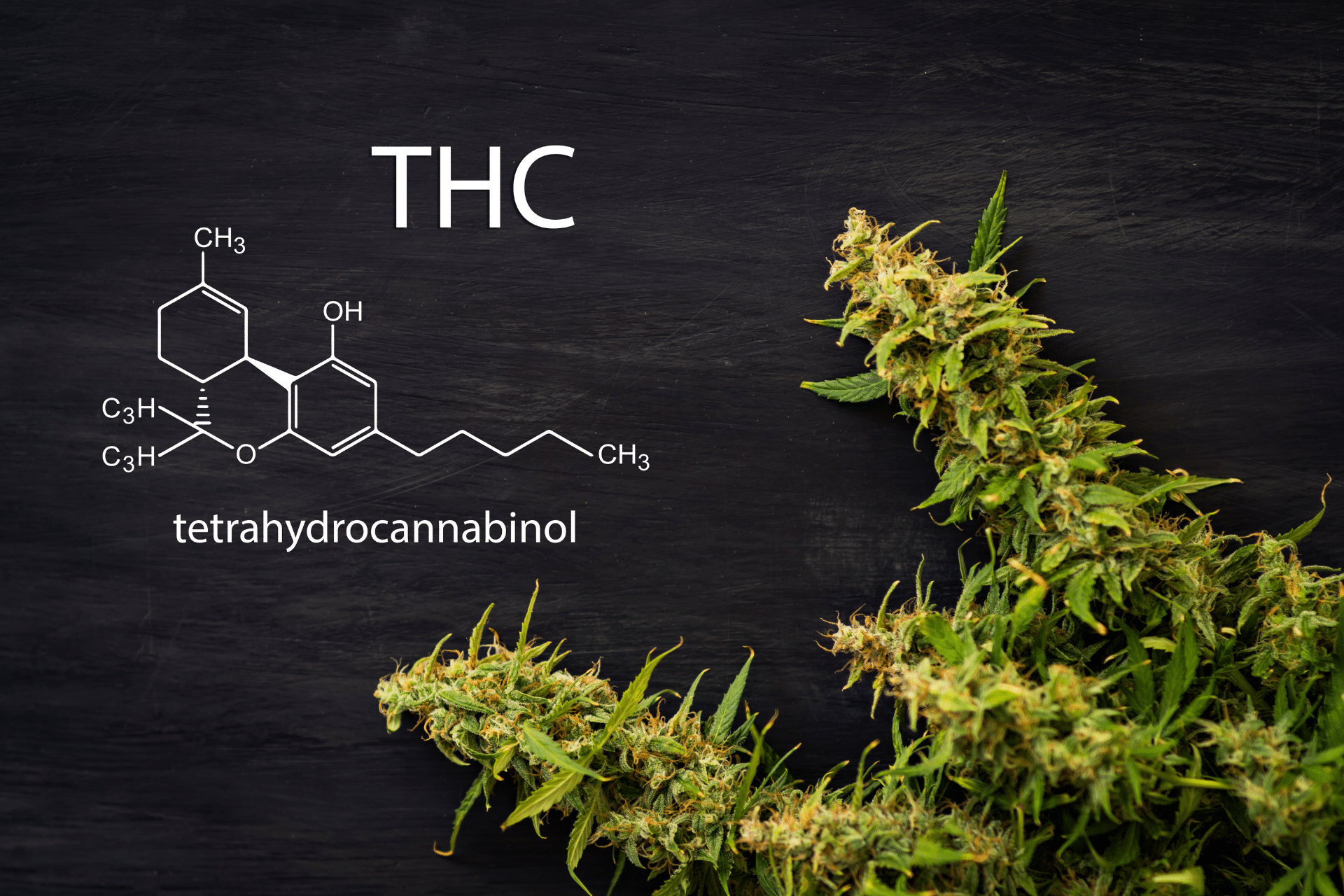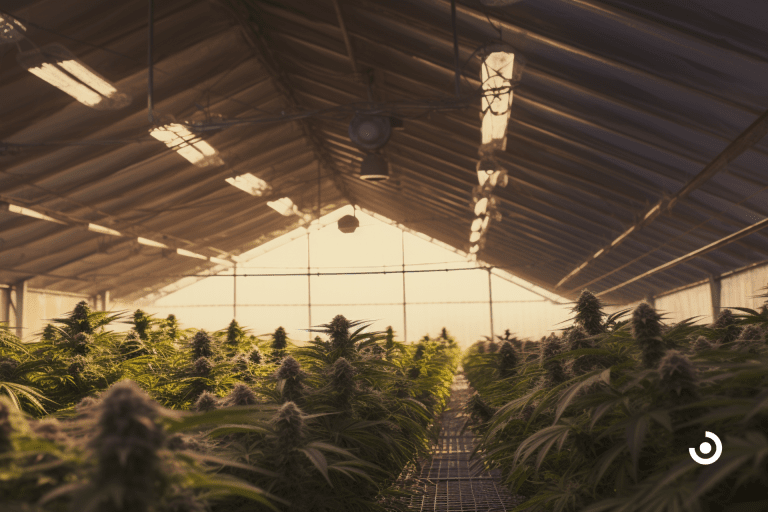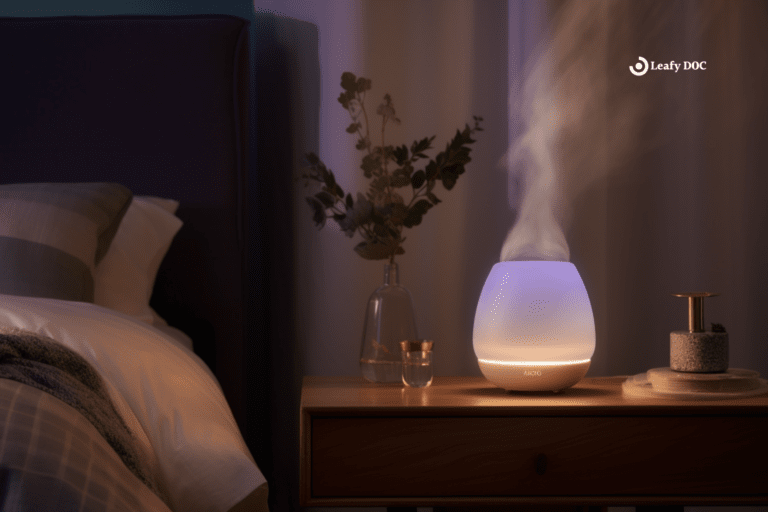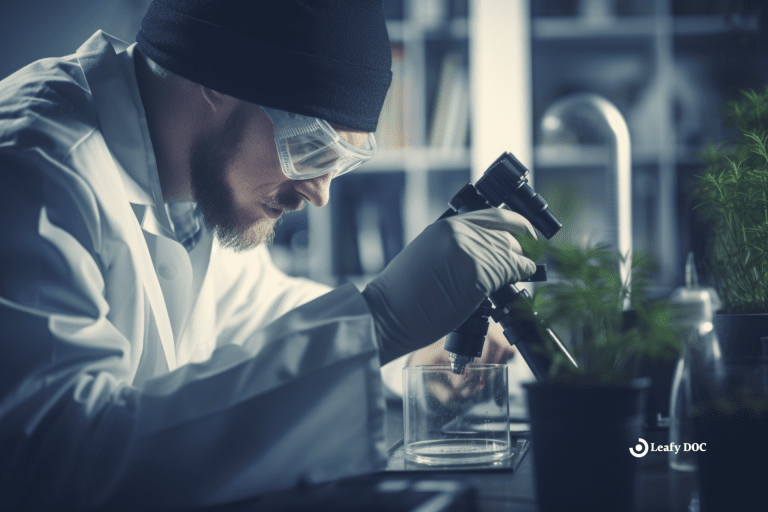What is THC – How it Works and Potential Benefits
by Haley Mills · January 4, 2023
Learn about the benefits of THC and how it can improve your life. This blog post provides information on what THC is, how it works, and the potential benefits it can offer.

Learn about the benefits of THC and how it can improve your life. This blog post provides information on what THC is, how it works, and the potential benefits it can offer.
More American adults than ever are experimenting with medical cannabis use for various purposes. Some turn to the cannabis industry for chronic pain management and medical treatment, while others partake for recreational use. However, many people aren’t familiar that cannabis comes in different variants based on the cannabinoids and types of THC they contain.
What is THC?
THC is the most abundant cannabinoid in marijuana; it is the compound that causes psychoactive effects. Parts of or products from the Cannabis sativa plant that contains significant levels of tetrahydrocannabinol are referred to as “marijuana” (THC). THC is also the most active ingredient in marijuana that impacts a person’s mental state. According to the United Nations, marijuana is used by 158.8 million people worldwide, or around 3.8 percent of the world’s population. Over 94 million people have admitted to taking it at least once in the United States.
How does THC affect the brain?
The main reason why THC is psychoactive is that it affects the brain’s cannabinoid receptors. The receptors are found in the brain, and spinal cord and have different effects depending on their location. When THC enters the body, it can affect the CB1 receptors located in the hippocampus and cerebellum. This changes how you perceive time, space, memory, coordination, and learning abilities.
How does THC benefit you?
The positives of using THC are many; let’s look at them.
- Pain relief THC has been proven to help regulate pain by interacting with nerve cells in our bodies. It has also been shown that THC can reduce inflammation and swelling because it binds to receptors on immune cells.
- Chronic pain affects more than 1.5 billion individuals globally, and many experience neuropathic or nerve-related discomfort.
- The cannabis component, according to research, activates central nervous system circuits that block pain signals from reaching the brain.
- THC can help control seizures.
- THC has shown benefits to those who suffer from anxiety and depression.
- It can help with symptoms of IBS, Crohn’s disease, and other long-term afflictions.
- Increases appetite.
- THC is used to treat nausea, especially chemotherapy-induced nausea experienced by cancer patients.
- Sensory enhancement,
Sleep Aid
THC acts on the same receptors in your brain as many other sleep-inducing drugs. But THC can also work on different areas of your brain than other sleep-inducing drugs. It might be more effective than other drugs because it doesn’t just target one aspect of your brain as GABA or benzodiazepines do.
THC primarily affects two parts of the central nervous system: the hippocampus and cerebellum. Studies have shown that THC has a calming effect on these regions when they are overstimulated from anxiety or stress.
Oral medical cannabis doses were reported to aid insomniacs in falling asleep faster in trials conducted in the 1970s. Not only that, but additional research suggests it may also help with breathing while lowering sleep disruptions.
This is fantastic news for people who suffer from illnesses like sleep apnea.
THC and PTSD
While the idea of using THC for PTSD may seem strange, it’s worth taking a look into its benefits. The plant-based compound found in medical cannabis has been proven to help with sleep disorders, is an antidepressant, is effective at pain relief, and can also help with managing anxiety or stress.
This means that there are many ways in which taking marijuana for PTSD could be beneficial to someone who suffers from it. According to estimates, 8% of Americans have PTSD. To put that in context, this figure is the same as the population of Texas.
Agitation, extreme anxiety, despair, insomnia, nightmares, and social isolation are all symptoms of PTSD, and THC-rich cannabis, according to some physicians, is the only medication for the disorder. Studies have shown THC to help with several PTSD symptoms, including anxiety, despair, sleeplessness, flashbacks, and nightmares and many physicians now recommend medical marijuana as an alternative treatment option.
Anti-Inflammatory
THC is a powerful pain reliever that has also been shown to function as an anti-inflammatory. This means it can help reduce inflammation and swelling by blocking inflammatory cells from entering the bloodstream and damaging tissues.
- Some of the benefits of THC as an anti-inflammatory include:
- Neuroprotective effects
- Pain relief
- Reduced levels of nausea and vomiting
- Improved sleep quality
Additionally, according to research, the cannabis molecule can reduce the synthesis of cytokine and chemokine compounds in the body in some cases – and cytokines and chemokines cause inflammation.
Muscle Relaxant
Have you ever consumed marijuana that makes you tired or heavy-bodied? THC is well-known for its muscle-relaxing effects. This quality may explain why the chemical mainly benefits people with multiple sclerosis, who frequently suffer muscle stiffness, discomfort, and cramping. And a cannabis-based medication for these symptoms is now available in more than 25 nations. Sativex is a medication that contains both THC and CBD.
There are two types of receptors in the brain. One is called the CB1 receptor, and this receptor is located in the central nervous system. These receptors are also found in the brain, kidneys, liver, lungs, heart, and uterus. The other receptor, the CB2 receptor, is mainly found near the immune system (lymph nodes) and throughout the body, like bones and joints. THC acts as a muscle relaxant by interacting with these two types of receptors.
Do dispensaries sell THC?
While legal jurisdictions like California and Colorado have several different dispensaries, possessing medical marijuana in states like Alabama and Georgia, which are technically medical marijuana states, can result in marijuana possession charges. If you live in a state where recreational marijuana is legal, you can buy it from local vendors. Marijuana is legal for medical use in some states and can only be purchased from medical dispensaries. You will need a medical card from a licensed physician and must buy from government-approved retailers.
THC comes in many different product forms, not just dried cannabis flowers. Oils, tinctures, baked goods, candies, savory snacks, cooking additives, beverages, topical solutions, and more. THC can be ingested, taken sublingually, smoked, vaped, dabbed, taken in pills, capsules, powders, topical solutions, and even transdermic patches. There is a range of potency to products, so always read product labels, and ask dispensary staff or medical provers if you have questions.
What is considered High THC?
Cannabis that contains more than 20% THC is known as a “high-THC strain.” In some situations, THC concentrations in cannabis flowers can range from less than 1% to more than 30%.
The following is a helpful guide to remember when estimating THC content:
- 10% or less is considered low-strength THC.
- 10% to 20% is medium.
- 20% to 30% is high-strength THC.
- More than 30% is a very strong
Three Types of Delta THC
Several variations of THC, called chemical analogs, work to distinguish various types of THC from one another. These unique THC compounds are all slightly different. These differences impact how the human body’s endocannabinoid system reacts to them. Some of these analogs are federally illegal, while another active ingredient may be allowed.
What is Delta 8 THC?
Unlike CBD, delta-8 THC produces euphoric effects similar to but milder than delta-9 THC, the well-known psychoactive compound in cannabis. Delta-8-THC occurs naturally and is an isomer of delta-9 THC, and the difference between the two molecules is simply the location of a carbon double bond.
Delta-8 THC’s popularity began when an oversupply of CBD extracted from hemp grown in the United States caused the price of CBD to fall dramatically. Producers began looking for ways to convert CBD into delta-8 THC. The cannabis industry marketed the products to those seeking pain relief and stress management, those not looking for an intense high, and those living in illegal areas.
Physical Effects
Similar to delta-9 THC, delta-8 can provide feelings of body relaxation and pain relief but with milder psychoactive effects. For people who don’t want to experience a high, the lower potency of Delta-8 THC may be beneficial. However, it will produce more mental effects than CBD oil and other products per the results of clinical trials.
Psychoactive effects
There’s a lack of research and empirical evidence regarding Delta-8’s impact on your overall mental health. Many survey participants recently reported using Delta-8 and their prescription medications (with medical authorization) to help with depression and substance use disorder symptoms.
Potential Benefits
Users say Delta-8 THC can help to:
- Reduce nausea
- Boost appetite
- Ease chronic pain
- Boost mental health
Adverse Effects
With little to no regulatory oversight and limited lab testing on a federal level, many products are not pure delta-8 THC. These products typically contain a high percentage of delta-8 THC and delta-9 and unknown reaction by-products.
Delta 8 THC can produce side effects such as:
- red eyes
- dry mouth
- rapid heart rate
- slow coordination and reaction time
- increased anxiety
- short term memory loss
What is Delta 9 THC?
Delta 9 THC is a significant cannabinoid found in abundance in cannabis. Extraction is usually relatively cheap and straightforward as a result. It is derived explicitly from marijuana plants.
When someone talks about THC, they are more than likely referring to Delta-9 as it is considered “regular THC.” It is a cannabinoid molecule in cannabis, the primary psychoactive ingredient within the plant.
Physical Effects
Many weed users have expressed that delta-9 THC products have helped improve sleep quality, treat body aches, improve appetite, decrease physical discomfort, etc. Delta 9 is commonly used for its potential medical benefits, reducing symptoms of anxiety and posttraumatic stress disorder (PTSD) and helping people combat glaucoma, seizures, irritable bowel syndrome, neuropathic pain, and other chronic conditions.
Psychoactive effects
The THC cannabinoid interacts with the CB1 receptors located in the human brain. This area is responsible for many mental processes, including decision-making and retaining memories.
This powerful compound is said to provide effects such as excitement, euphoria, focus, calm, and more. The results can be intense for some cannabis users, while others enjoy certain strains’ relaxing qualities or creativity boosts.
What is Delta 10 THC?
Delta-10 is a cannabinoid found in trace amounts in the cannabis plant. Like delta 9 THC, it can get you moderately high, but it is much less potent. It is better compared to Delta-8 THC in its effects.
Delta-10 is commonly processed from hemp-derived CBD, as is delta-8. Because hemp is federally legal in America, delta-10 is legal in all 50 states. However, specific state laws have outlawed delta 8- and delta-10 independently.
Physical Effects
Delta 10 THC tends to have mild relaxing, calming qualities that are mainly body-centered. Many people use it to feel comfort and stress relief at the end of a long day or when feeling anxious.
Psychoactive effects
Delta 10 is psychoactive but significantly less potent than regular THC and milder than delta 8 THC. Its uplifting effects make it popular for people who want to get high and get things done; the experience is often reported to feel creative, focused, and energetic.
Possible Health Benefits
- Protects the Brain- Delta 10 THC can aid in memory-related issues, cognition, and neuroplasticity.
- Stimulate Appetite- Delta 10 THC helps stimulate an individual’s appetite due to its interaction with the body’s endocannabinoid system.
- Increase Energy – Delta 10 THC offers a Sativa high sensation with a boost in energy and motivation.
- Relieve Pain- Cannabinoids possess anti-inflammatory properties to help alleviate the chronic pain you experience.
- Stress Control – Delta 10 THC affects the limbic system and thus can help in dealing with conditions like anxiety, post-traumatic stress disorder, and depression.
Potential Adverse Effects
The most common side effects of delta-10 THC include the following:
- Dry mouth
- Red eyes
- Increased appetite
- Over-active mind
Delta 8 vs. Delta 9 vs. Delta 10
The main distinction between the three delta THC molecules is their physical and mental effects. Scientific research can distinguish one from another under a microscope due to genetic composition. Still, most cannabis consumers will be able to spot them upon consumption by the differences in how each makes them feel.
A mild, relaxing effect is the most noticeable effect of Delta-8 THC. On the other hand, a feeling of a moderate euphoric high is sure to be an effect equated to Delta-9 THC. And if you were to feel more joyful than usual, you would likely be experiencing the subtle impact of Delta-10 THC.
THC-O and Delta-8 THC
THC-O is a chemical replica of THC and shares the basic genetic structure. However, THC-O is not a naturally occurring cannabinoid and must be synthesized in a lab. THC-O begins with naturally occurring CBD extracted from less than 0.3% THC hemp. The CBD is extracted from raw hemp. From there, something called delta-8 THC is removed from the CBD.
Delta-8 THC is a psychoactive chemical compound present in both hemp and cannabis. D8 THC is not as potent as THC; however, it can have some of the same psychoactive effects on a smaller scale. Delta-8 THC is more similar in structure to THC than CBD. It binds to the human body’s endocannabinoid system and, unlike CBD, can have some mildly intoxicating effects.
CBD vs. THC
CBD oil is extracted from hemp, while THC comes from marijuana plants. CBD and THC cannabinoids are present in both the hemp flower and marijuana plant matter, but hemp tends to have more CBD and a less potent level of THC. This results in minor psychoactive effects and more medicinal benefits.
Cannabis plants produce a variety of substances called cannabinoids. They are a class of chemical compounds that activate the cannabinoid receptors in the brain and body. The two most common ones are delta-9 tetrahydrocannabinol (THC) and cannabidiol (CBD).
THC is psychoactive, but CBD is not. In other words, THC can get you high, while CBD usually does not. There are many benefits from both, such as being able to help those with anxiety and chronic pain.
Where is THC legal?
THC is a derivative of the cannabis Sativa plant, including marijuana and hemp. The cannabis plants are siblings but are not exact, so they have slightly different genetic makeup.
Hemp is naturally low in THC and typically higher in CBD, which doesn’t have psychoactive properties, while marijuana contains a much higher concentration of THC.
Per the 2018 Farm Bill, hemp-derived products with no more than 0.3% THC content are federally legal in the United States for adult purchase and consumption. However, any amount of THC higher than that is not legal per federal law. Over the past few years, the Drug Enforcement Administration (DEA) has stopped focusing so heavily on marijuana offenses.
Final Thoughts
When delta-8 THC hit the weed market, it was welcomed to bring on a smoother and less euphoric high than delta-9 and other THC variants. And now, with the emergence of lower potency delta-10, people can experience milder effects than with a more potent THC without giving up the therapeutic benefits. The key is knowing your specific needs and experimenting to find the best THC products for your life and Leafy DOC can help.
In recent years, there has been a significant increase in scientific research on THC content. This research has revealed that people can use THC’s medical benefits to manage various ailments, such as sleep disorders, chronic pain, and PTSD which helped to reform state medical cannabis laws in some areas. It also offers help for people who have arthritis and other inflammatory diseases. THC products are now available at more dispensaries, and – with a few more states set to legalize it soon – the future of oils, gummies, capsules, and more is looking very bright.
Last Updated: August 8, 2024
Get Approved for Your Medical Marijuana Card in Minutes!

Get Your Medical Card
Connect with a licensed physician online in minutes

Like This Article?
Share with your friends
Table of Contents
Keep Reading
-
Exploring Medical Cannabis Cultivation Practices
Uncover the secrets to thriving medical cannabis cultivation practices. Master expert techniques for top-quality yields and start maximizing your results today. Dive into the world of medical cannabis cultivation now and revolutionize your growing game!
-
A Guide On Relaxing Terpenes For Better Sleep
Discover the power of relaxing terpenes and unlock a peaceful night’s sleep. Say goodbye to restless nights and hello to ultimate relaxation. Click now!
-
Researching The New PHC Cannabinoid
Uncover the revolutionary potential of the new PHC cannabinoid in cannabis research! Learn about its benefits and how it differs from other cannabinoids. Click here to explore the future of cannabis!



